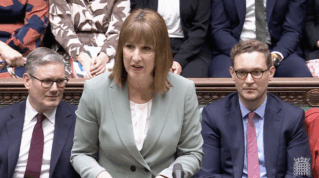After years of neglect, Cinderella is finally on the ballroom dance floor. The further education and skills sector featured prominently in all of this year’s party conferences, was given star billing in the prime minister’s speech and featured in the leader of the opposition’s speech too.
Meanwhile the Prince Charming of the previous decade – our Higher Education sector – has been relegated to the sidelines in the constantly rotating stage of British party politics. We’re witnessing the traditional display of pre-election manoeuvring – ‘Strictly Come Voting’, if you like – but the mood music has changed.
Having ditched one big infrastructure project, Rishi Sunak perhaps felt the need to commit to another one; this time a re-engineering of our education system for 16-19 year olds. Goodbye HS2, after 20 years of debate; hello the Advanced British Standard, a plan to replace A Levels with a baccalaureate-style qualification, which we are told will take 10 years to fully implement.
There’s plenty to welcome in the idea of creating a system that combines elements of academic and vocational education and broadens our post-16 curriculum, but it promises to set us on a course for a decade of radical upheaval at a time when many commentators are arguing for greater policy stability and continuity. Is this really what we need, at a time when we’re still recovering from the educational impact of the pandemic and still trying to bed down new initiatives such as T Levels, Higher Technical Qualifications, and Institutes of Technology?
The Conservative announcement of extra funding to support the FE sector is very welcome, but they have gone strangely silent on critical issues such as the misfiring apprenticeship levy system. It’s been left to Labour to make the running, with its commitment to a broader Skills and Growth Levy, the creation of Skills England to oversee a national skills strategy, and the interesting new idea of Technical Excellence Colleges directly linked to Local Skills Improvement Plans.
Cinderella is finally on the ballroom dance floor
The Liberal Democrats, meanwhile, are keeping it simple; their policy will be to pump money into all parts of the system, with the extension of the pupil premium to 16- to 18-year-olds, an increase in per-student funding to above the annual rate of inflation, and a £10,000 ‘skills wallet’ for every adult to spend on education and training.
It’s clear that the university sector has now found itself in the ‘too hot to handle’ category. All the burning questions – the fee cap, the student loan system, the increasing reliance on overseas students, the growing financial strain many universities are under – were studiously ignored at all the party conferences, at least in terms of new policy.
There are some differences in tone: while Rishi Sunak is still pursuing the phantom menace of ‘rip-off degrees’, Keir Starmer embraced ‘the working-class aspiration to go to university’. But there were hardly any concrete commitments on HE policy. Labour want universities to be part of the new LSIPs; the Liberal Democrats want more maintenance grants for disadvantaged students. Hardly ground-shaking stuff, and it goes nowhere near addressing the elephant-in-the-room question of student fees and loans, nor the huge challenge of implementing the Lifelong Learning Entitlement.
Stepping back from the detail, what is remarkable is the high degree of consensus between all main political parties that investing in better vocational skills is now an essential priority. This is very welcome, and opens up some exciting opportunities, whatever the colour of the next government.
But is throwing money at the problem or pursuing further qualification reform the answer? The challenge is deeper. The false dichotomy between academic and vocational education and the artificial divide between FE and HE surely need to be tackled if we are to create a pipeline of skills and talent stretching from school right through to workplace training.

















Your thoughts